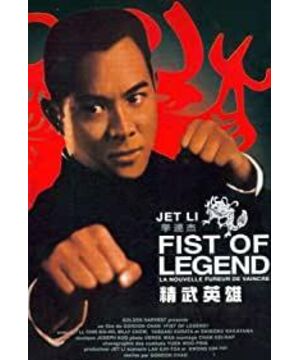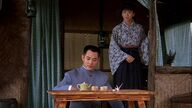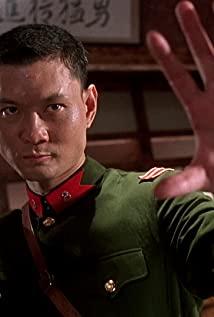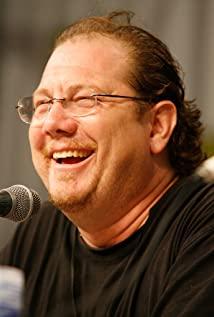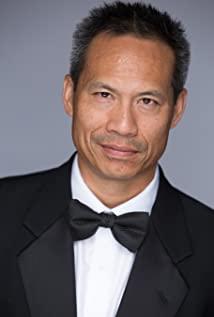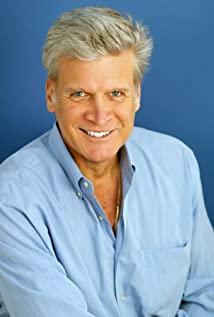? I thought I was a martial arts prodigy since I was a child, and I still think so now. At the beginning of martial arts novels, they always praise the protagonist who has not yet grown up: the skeleton is Qingqi. I always thought that was me. In the end, it is my lifelong regret that I did not practice martial arts, and it is no exaggeration to say that it is also a great loss to the martial arts world. I can tell you without shame that when the drama "Wusong" was staged, I was so excited that I had to pee every few minutes. Not much, just a little. My dad had to put a urine spittoon in front of me every time before the performance of "Wusong". I can tell you without shame that when I was four years old, I often secretly and secretly went to the woods behind the house to practice martial arts with my seven or eight-year-old children, although every time I was beaten until my nose was bruised and my pants were hung with barbed wire. , I'll be beaten a second time when I come back; I'm not ashamed to tell you that when "Shaolin Temple" came out, my dad left my five-year-old me to go to the movie and I went to the cinema with snot and tears, begging to guard the gate After my uncle let me in, I found my father in the dark head with God's guidance and got my wish to see the monk Jueyuan. I'm not ashamed to tell you that "Chen Zhen" just appeared in our small county video room, and when there were no tickets left, I forced my dad to carry me into the video room, rode on his shoulder and watched it with relish An episode of "Chen Zhen" in Cantonese - although I never understood what they were babbling about.
I still have a lot of shame. In fact, I have omitted the history of my kindergarten learning drunk boxing from my elder brother in junior high school, opening a mountain to accept apprentices in elementary school, and writing martial arts novels in junior high school. I give these examples mainly to show how qualified I am to comment on kung fu films. Alright, let's get back to the point after the jokes are over.
2. What is the difference between kung fu films and martial arts films
When it comes to kung fu films, we must first distinguish them from martial arts films. Of course there are fights in martial arts films, but martial arts films mainly show the spirit of chivalry and the hazy rivers and lakes on which martial arts survive. A large number of movies based on martial arts novels are martial arts movies. In martial arts movies, although the older generation artist Zhang Che and Hu Jinquan are in front, it has to be said that Tsui Hark is the pinnacle of martial arts movies. The atmosphere of his films is also fantastic and fantastic. Whether it is the Shang and Xiaoao Jianghu or the old and new Shushan Qixia, whether it is the new Dragon Gate Inn or the Xulongmen Inn, whether the new Crane Needle or Di Renjie Tongtian Empire, Tsui Hark has created an environment where the "Jianghu" is both detached and secular, and has also captured the martial arts. The character's spirit of passion, loneliness, helplessness, benevolence and righteousness. A lonely shadow in the cold river, an old friend of the rivers and lakes. God's will is so bright, I will walk alone. In Tsui Hark's martial arts films, martial arts are just the same props as the sets and the costumes of the characters. These props must serve the artistic conception and chivalrous spirit he created. In Xu's artistic conception, martial arts should be beautiful, elegant, imaginative, high up and down, and shadowy. In his martial arts movies, you can hardly see the real, punch-to-meat martial arts design. He also wouldn't distinguish what kind of school this kung fu was and what characteristics it should have. Martial arts became a place for him to express his imagination and creativity: the stones thrown by the master turned into stone needles under the friction of the air ("New Crane Needle"), the sharp knife slashed the villain's thighs into bones ("New Dragon Inn"), Silk thread can gracefully drag a big boat ("The Rising of the Swordsman").
This is not the case with kung fu films, however, which focus on the display of martial arts. Martial arts is a superior existence beyond clothing, props, and scenery, and even the plot must revolve around the display of martial arts. For example, Bruce Lee's kung fu movies are called kung fu movies because many plots are designed to show the leg method and even practice of Jeet Kune Do. The "Xia" in kung fu films is in a position similar to clothing, props, and scenery. Many kung fu films are actually revenge films, and have nothing to do with "Xia". Since kung fu is the core of kung fu films and wins with martial arts aesthetics, the actors themselves are required to have martial arts skills, and during the filming process, one move and one style are also respected, punching to the flesh. Such as "Jingwumen", "Snake Shaped Hands", "Drunken Fist", "The King of Stick", "Shaolin Temple", "Fuse", etc. are typical kung fu films, all showing a martial art, a weapon, a martial art The fighting skills and features of the film are the core of the film.
Bruce Lee is the founder of kung fu movies. His kung fu films often show a variety of fighting techniques, including taekwon, western boxing, muay thai and more. Weapons include knives, guns, sticks and their own nunchakus, such as "Dragon Crossing the River" and "Jingwumen".
Many of Jackie Chan's early films "Strange Hands", "Shaolin Wooden Man Alley", "Snake Shaped Hands", "Eight Steps of Snakes and Cranes", etc. still follow traditional fighting methods and are also limited by shooting conditions. Although these kung fu films are Show one school, but the generalization is the same. Then Jackie Chan developed his own style, initially kneading juggling acrobatics into kung fu films, and gradually focusing on using environmental props to design martial arts movements. It is said that each martial arts scene of Jackie Chan needs to be improvised, thinking of moves according to the characteristics of the environment, and finally formed his own unique martial arts aesthetics. All of his later works have a strong Cheng's brand. Many works of his fellow disciple, Sammo Hung, can also be attributed to the aesthetic category of Cheng's Kung Fu. The Japanese series "Katayama Criminal Police" can also see the shadow of Cheng's Kung Fu.
Donnie Yen formed his own kung fu style after middle age, absorbed the fighting skills of modern martial arts, and absorbed many techniques and movements of the Southeast Asian martial arts department, showing the characteristics of toughness, directness and crispness. "Slaying the Wolf" is a The representative work, the subsequent "Fuse" continued and fixed this style. In the "Ip Man" series, although the description of traditional martial arts, the personal characteristics have been diluted, but as long as Du Yuhang's "Ip Man Prequel" is compared, it will be found that Zhen's Ip Man's personal style is still obvious.
A large number of Jet Li's films are showing the beauty of traditional martial arts routines. Although he occasionally appears in other styles of kung fu films, such as "Zhongnanhai Bodyguard" and "Fighting Heroes", his overall style has been established since his famous work "Shaolin Temple". The work "Huo Yuanjia", which is a personal exposition of his own martial arts thoughts, is in the same line. I have to mention the Huang Feihong series here. The Huang Feihong series is very famous, but it is difficult to say that the Huang Feihong series reflects Jet Li's martial arts style. Because the director of the Wong Fei Hung series is Tsui Hark, the personal style of Tsui Hark's works is too strong, and as I mentioned earlier, Tsui Hark is good at building the world of martial arts. The Once Upon a Time series, although formally a story about a martial artist, has all the elements of a kung fu movie. But when it comes to kung fu, it still shows the exaggeration and elegance of Tsui Hark. Extensive use of Weiya to pursue aesthetic movements, the so-called Foshan shadowless feet, has been out of gravity. Even if the protagonist of the Huang Feihong series is later replaced by Zhao Wenzhuo, it is still Tsui Hark's Huang Feihong, not Li or Zhao's Huang Feihong. Strictly speaking, Huang Feihong is difficult to attribute to kung fu films. You only need to compare the Ip Man series with the Wong Fei Hung series to make it clearer. Whether it's Donnie Yen's Ip Man, Du Yuhang's Ip Man, Huang Qiusheng's Ip Man, and Tony Leung's Ip Man, they are all under the framework of bondage and the essence of Wing Chun, which is different from Wong Fei-hung's unrestrained imagination.
3. "The Grandmaster" and others Let's
focus on a few kung fu films.
"Tom Yum Kung" and "Pirates of the Buddha Line", Thailand's famous works by Tony Jaa, if you are a fan of kung fu movies, these two films should not be missed. It is no exaggeration to say that he is better than most kung fu movies in China. Although Jackie Chan was once Tony Ja's idol, Tony Ja's kung fu display definitely surpassed Jackie Chan. These two films vividly reflect the flexibility and ferocity of Muay Thai. Many scenes in the story are designed to show Tony Jia's kung fu. Tony Jia claims to never use props such as Weiya. After reading it, you will know how powerful it is.
Wong Kar-wai's "The Grand Master". Wong Kar-wai made a martial arts film "Evil in the East and Poison in the West", in which he constructed his own martial arts world full of literary and artistic style. This is the only martial arts film that I think has the taste of Gu Long's novel. Wong Kar-wai also made a kung fu film "The Grand Master". "The Grandmaster" is an authentic kung fu film, and it is also a kung fu film with considerable connotation. From this point alone, Wong Kar Wai is better than Tsui Hark. Wong Kar-wai's two works also illustrate the distinction between kung fu films and martial arts films. In "Evil in the East and Poison in the West", the martial arts moves are only formal, and Tony Leung does not need to practice any kung fu before the performance. The blind swordsman was killed by a knife not to show martial arts, but to "I heard people say that if the knife is fast, the blood spurting out of the wound is like the sound of the wind, which is very nice, but I didn't expect that the first time I heard it was my own flow. The blood that came out." This line.
But "The Grandmaster" is different. "The Grandmaster" is a kung fu movie, so Tony Leung must practice Wing Chun well. In order to play the role of the master of Bajiquan, Zhang Zhen really won the national championship of Bajiquan. In the scene where Ye Wen crosses the border in "The Grand Master", the various martial arts mentioned in the scene are genuine things. Therefore, "The Grandmaster" is an authentic kung fu film, and it is a kung fu film with a certain artistic height. Many people misunderstood "The Grandmaster" as Ye Wen, so when watching this film, they always felt that Zhang Zhen's Xiantian, Zhang Ziyi's Gong Er, and Zhao Benshan's senior brother were inexplicable. It is said that "The Grand Master" is a film made by Wang Jiawei after he devoted himself to the study of the martial arts of the Republic of China. "The Grand Master" refers to the masters of the martial arts of the Republic of China, including Wing Chun, form and meaning, as well as eight-level gossip. . At the end of the film, the plaques of the major sects are slowly swept across, and the main theme of the film is unspoken. Various details in the film, including the martial arts experience of "don't forget, there will be echoes", the essence of boxing "I would rather think about progress than stop thinking", "only see yourself, how can you see heaven and earth, see all beings?" The martial arts speculations are worth revisiting again and again. This is a good film with a deep description of the martial arts of the Republic of China. In addition to kung fu, there is a good film with ideological connotation and humanistic concern. It is worth watching again and again.
Kung fu films are genre films. All films can be classified into a certain genre, but this does not prevent good works from appearing. Gangster films can produce masterpieces like "The Godfather", science fiction films can produce masterpieces like "2001 To Space", and thrillers can produce masterpieces like "Mulholland Drive". There is no conflict between the type of the film and the ideological connotation it finally expresses and the artistic height it achieves. If Wong Kar-Wai's "The Grandmaster" is a very good literary kung fu film, then Chen Jiashang's "Fighting Heroes" is a very good commercial kung fu film.
4. Unconventional commercial kung fu films "Heroes of Jingwu"
, "The Grand Master" and "Heroes of Jingwu" both depict the fate of characters in the martial arts world under the social changes of the era. "The Grand Master" focuses on the personal emotions of martial artists, the inheritance of martial arts skills, and the understanding of the spirit of martial arts. In addition to the above-mentioned themes, "Heroes of Jingwu" also focuses on the criticism of the national character and the reflection on the hatred of the nation and the country. The routine of a commercial film in "Heroes of Heroes", in shaping characters, depicting emotions, and delineating martial arts, is difficult to compare with the meticulously crafted "Master of the Generation". The lighting, scenery, image design, acting or lines are also rough. But the whole body of the film is vaguely different from the atmosphere of ordinary commercial kung fu films, revealing the director's ambition and thinking.
In terms of kung fu, Chen Zhen is played by Jet Li, which I think is the pinnacle of Jet Li's kung fu films. The martial arts design of this work has its own characteristics. It is both beautiful and realistic, but it is not limited to simple kung fu performances, and is closely related to the martial arts ideas conveyed by the film. Chen Zhen in "Heroes of Jingwu" is both an inheritor of traditional martial arts and an absorber of new martial arts. Therefore, his identity is not only the fifth senior brother of Jingwumen, but also a Japanese student - he is a portrayal of the Chinese elite during the social transformation. On the basis of traditional martial arts, he absorbed Western steps and Japanese side kicks, which was the mainstream ideology of "foreign is used for China, eclectic, extracting the essence and removing the dross" advocated by the elites at that time. The Chinese kung fu shown by Chen Zhen in "Heroes of Jingwu" is flexible and practical. In Chen Zhen's kicking hall, in several Kung Fu dramas with Huo Tingen, Funakoshi Fumio, and Fujita Gang, the details of Kung Fu are all aimed at showing the concept of martial arts innovation. He said to Fumio Funo, the head coach of the Black Dragon Club: "What can beat you is good boxing." Fumio Funo replied, "Chinese martial arts emphasize personal cultivation, not actual combat. Your performance today can It's a breakthrough."
This kind of interpretation and pursuit of martial arts is rarely seen in other kung fu films.
In order to explain martial arts, the film also deliberately designed the killing machine Fujita Go, Japanese martial artist Fumio Funakoshi, Jingwu Gate Museum owner Huo Tingen and other images. The killing machine Fujita is very powerful, but for him martial arts is just a tool to kill. For martial artists, martial arts is a pursuit of realm and a kind of "Tao". Fumio Funakoshi said: "The best way to knock down an opponent is to use a pistol. The purpose of practicing martial arts is to push a person's physical strength to the highest limit. If you want to achieve this level, you must understand the universe." Chen Zhenyi said: "Mr. Funakoshi is the best in Japan because of his martial arts, not murder." Another character in the film, Huo Tingen (played by Qian Xiaohao), the owner of Jingwumen, focuses on depicting the inheritance and development of traditional Chinese martial arts. Hotingen is also a very complex multi-faceted character in the play. He is not only a playboy from a wealthy family, but also a passionate young man with ambition and responsibility. He not only has the spirit of competing with Chen Zhen, but also shows Chen Zhen's grand vision with the secret "Missing Fist".
The story of Jingwumen has been performed by Bruce Lee, Liang Xiaolong, Jackie Chan and Donnie Yen, and the plot of the story is nothing more than ethnic hatred. All the images are made of masks. This is also the shooting method of ordinary kung fu movies, which caters to the general audience's viewing experience. After all, everyone buys tickets for kung fu. And "Fighting Heroes" is different. First, his characters are in different shapes, which enriches the connotation of the film. Whether it’s Huo Tingen’s brothel-loving Xiaohong, Chen Zhen’s wife, Japanese Photon, the leader of the Japanese Black Dragon Society, Jie Chuan, the Japanese martial artist Fumio Funo, the leader of the Shanghai Police Department, Huo Yuanjia’s former friend Long Jinsun, including Uncle Gen and the like Small characters have their own brilliance. Second, he describes the normal martial arts exchanges between Chinese and Japanese martial artists, and expounds the spirit of martial arts, which transcends the so-called ethnic hatred, and the low-level things of fighting and killing, revenge and revenge. Third, he does not have narrow nationalist patriotism thoughts, on the contrary, he has profound reflection and criticism on narrow nationalism thoughts and patriotic plots. Chinese people are not necessarily all good people, and Japanese people are not necessarily all bad people. Even the right-wing Black Dragon Society tried to give a more objective description. This is different from the mainstream of the rampage against the Japanese right wing, but it is in line with historical facts. Fourth, he tells about the hatred and friendship between the Chinese and the Japanese. The objective description of such complex feelings between nations and individuals, and the analysis of the relationship between Japan and China at that time by the characters in the film have gone far beyond the ideological connotation of ordinary kung fu films. Fifth, criticize and reflect on national traditions and national character. In the face of a changing world, what adjustments and changes should the Chinese make? It was the honest Uncle Gen who poisoned Huo Yuanjia, the brothel's Xiaohong who cheered Huo Tingen up, and the Japanese wife Mitsuo who always supported Chen Zhen.
"Fighting Heroes" is a commercial film. Box office is the primary consideration. In addition to the box office, I can add my own thinking and make the film look good and not dull. This is often the ability of Hong Kong directors.
View more about Fist of Legend reviews


